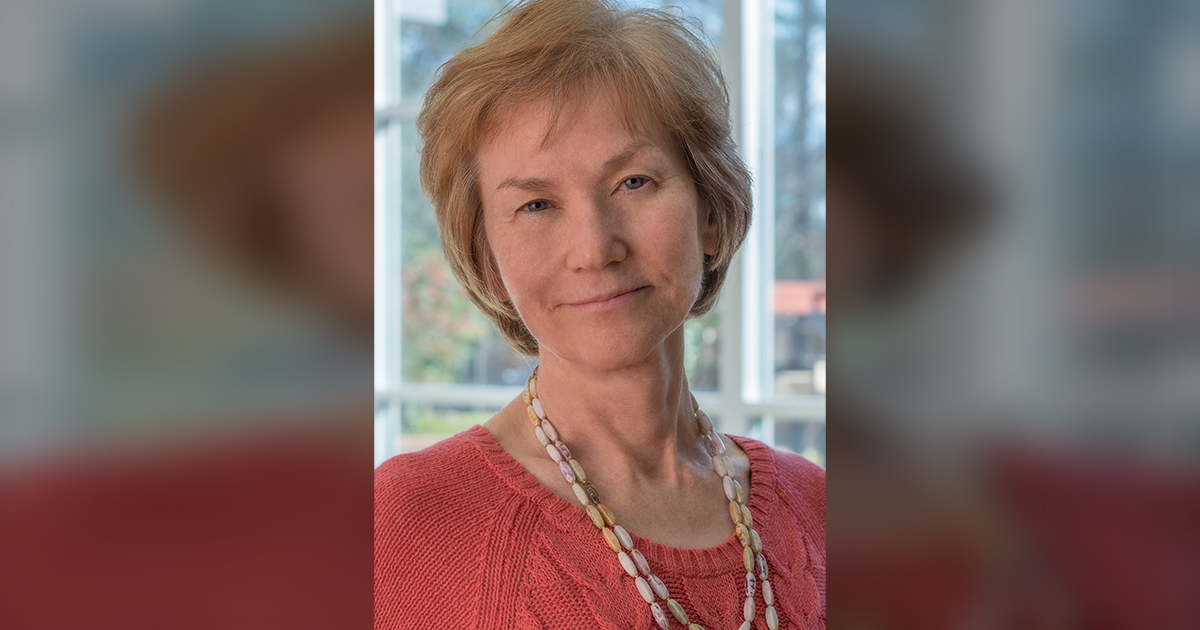UA Little Rock Honors Blevins-Knabe with Distinguished Professor Title

Dr. Belinda Blevins-Knabe, professor of psychology, has joined a select group of faculty members at UA Little Rock who have been honored for their long-term service and accomplishments by receiving the title of distinguished professor.
“Being named a distinguished professor is quite an honor for me,” Blevins-Knabe said. “This is a nice recognition from the university, and it’s a nice marker of a professor’s achievements.”
This is a special honor conferred only upon active faculty who are recognized nationally and/or internationally as intellectual leaders in their academic disciplines because of extraordinary accomplishments in research, teaching, published works, creative activities in the arts or endeavors of similar merit in other venues.
“Dr. Blevinds Knabe is not only a distinguished scholar,” said Dr. Elisabeth Sherwin, chair of the Department of Psychology. “While her promotion is based on her stellar and recognized scholarship, she is also an innovator. Dr. Blevins Knabe was one of the earlier adopters of online technology and was involved in many university initiatives pertaining to its promotion such as Academic Partnerships, and the pursuit of Quality Matters certification.”
After receiving her Ph.D. in psychology from the University of Texas at Austin, Blevins-Knabe joined UA Little Rock as an assistant professor in 1981. Over her more than four decades of service to the university, she’s also worked as an associate professor, full professor, chair of the Department of Psychology, co-director of the Academy of Teaching and Learning Excellence, and chair of the Institutional Review Board.
“I think being a department chair is one of the most important jobs on campus, and it’s something that has brought me a lot of joy over the years,” Blevins-Knabe said. “I think that is the most meaningful thing I’ve done at the university.”
While Blevins-Knabe has become a force in the developmental psychology world, she originally wanted to become an engineer. Even after taking all the available math courses at her small high school, she found that she didn’t have the required prerequisites to become an engineering major. As the oldest of five children, she couldn’t afford to stay in college for the extra time it would have taken to become an engineering major.
This is when Blevins-Knabe learned the power of a math education, and she turned her research to the mathematical development of young children. In addition to work on transitivity, seriation, addition and subtraction, she has examined the relationship between the home environment and young children’s mathematical development. Parental values, attitudes, and behaviors all influence how well children perform on assessments of mathematics.
“My specialty area is children’s mathematical development, especially with preschool children,” she said. “In the 1990s, we started looking into what has become known as the field of home numeracy. This involves researching how children learn math skills in the home environment and what kind of support parents provide to help their children learn math.”
Children’s early math skills form the foundation to learn the more complex math skills formed at school. When children enter school, some children have more advanced math skills than others. This is often due to the home environment. Since math is critical to success in many occupations, researchers across the world study children’s home numeracy.
After becoming a pioneer in the field of home numeracy, parents often ask how they can help their children learn math. Blevins-Knabe encourages them to play board games that involve numbers, card games that require finding which numbers are bigger, and finding ways to incorporate math in the everyday world and discuss it with your child. Daily activities like cooking, cleaning, shopping, and getting dressed all involve math.
“With my research, I am proud that I was able to make connections with researchers in the U.S. and publish an edited book with researchers across the world,” Blevins-Knabe said. “I am very proud to be one of the early people in this field. So many people are now involved in this line of research, and it has exploded since my research began.”
